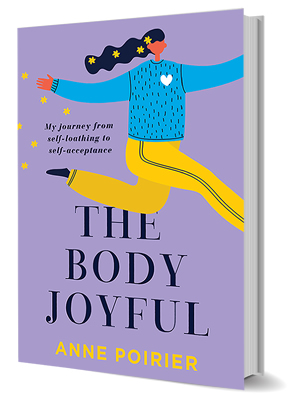Weight and food hold many people in an internal prison. There are thoughts about all the “bad” foods you “shouldn’t” be eating or how much more of the “good” foods you “should be” eating.
Your brain is full of where you (or your kids) fall on the BMI chart, how you compare with your friends and family, and what society tells you is healthy; for many, this whole “eating, food, and weight” thing has become a minute by minute obsession.
You become worried about eating too much for dinner, and feel guilty when you consume chocolate, ice cream, or chips. There’s a nagging voice that appears in your head as you look at the menu at your favorite restaurant, telling you what you “should” and “should not” eat.
I’ve named this inner food critic Judge Foody. Here’s how to fire her.
All this negative energy and emotion (worry, guilt, and shame) contributes to your stress level, then ends up impacting your choices.
When you are feeling angry, anxious, sad, frustrated or just generally unhappy, you are more likely to engage in emotional eating behaviors such as stress eating or eating for comfort.
These behaviors are followed immediately by those same feelings of guilt, shame, and worry—along with an inner critic who is taking no prisoners.
Do you know what this cycle is actually doing to your body? How this type of stress plays out in our bodies?
Well, brace yourself, here it is…
Stress hormones.
Have you heard how the hormone cortisol is released during times of stress?
As you become more stressed or anxious, the adrenal hormone cortisol is released.
As one of the better-known stress hormones, cortisol is released in response to anger, fear, frustration, and worry as part of the “fight, flight, or freeze” reaction.
And it signals the body to hold onto body weight as a protection mechanism. It can also increase appetite! This means cortisol and weight gain have a very real connection.
Put more simply: there’s a link between stress and weight.
Now I know you’re wondering, “How on Earth can saying ‘thank you’ help with all this?”
We know there is a direct link between weight and stress. But what if I told you there is also a direct link between stress and gratitude? Why not put them together?
It stands to reason that if there’s a link between the stress response and weight if you can find a way to counteract the stress response, this can have a positive effect on your weight.
Gratitude and the stress response.
Gratitude can be one way to counteract the stress response.
In fact, research has shown that regular practice of gratitude comes with many health improvements.
They include:
- Reduction in stress and aggression.
- Reduce stress hormones such as cortisol.
- Experience more sensitivity and empathy toward others.
- Improvements in self-esteem.
- Reduces the tendency to make social comparisons (which leads to decreased self-esteem).
- Increases the focus on appreciation for the abilities of the body, instead of the “disabilities” of the body.
- Better sleep.
- Writing in a gratitude journal before bed may help you sleep better and longer.
- Improved relationships and connection with others.
- Feeling appreciated by your partner deepens connection (important in feelings of belonging).
- Increased happiness.
- A study by Robert Emmons showed subjects who wrote down one thing they were thankful for every day for three weeks experienced a 25 percent increase in happiness over the following six months.
When you feel grateful, you tend to focus more on what is right in your life rather than what is wrong or missing. It also helps build appreciation in your body. When that happens, you tend to make healthier choices.
Another effective way to minimize stress is by developing a journaling habit. Not only can it help you control your stress response, it comes with several other benefits. Learn more about them here.
So now what? What do you do with this information?
In our next blog, we’ll share our gratitude toolbox for ways to create habits around gratitude, so check back soon. We’ve already shared our tips for building a self-care toolbox here, and you won’t want to miss that!
In the meantime, make sure to head over to our Facebook page, especially on Thursdays, for our Thankful Thursday posts! It’s a special day to make sure all of our followers pause for a moment to be grateful for what they have, who they are, or what is important to them.
Want some guidance on turning around your current relationship with food and your body?
Schedule a Complimentary Clarity Conversation today.
If you enjoyed this article, you won’t want to miss these either:
Improve Your Relationship with Yourself by Adopting These 3 Healthy Habits
Building Your Own Self-Care Toolbox
9 Steps to Ultimate Self-Acceptance


